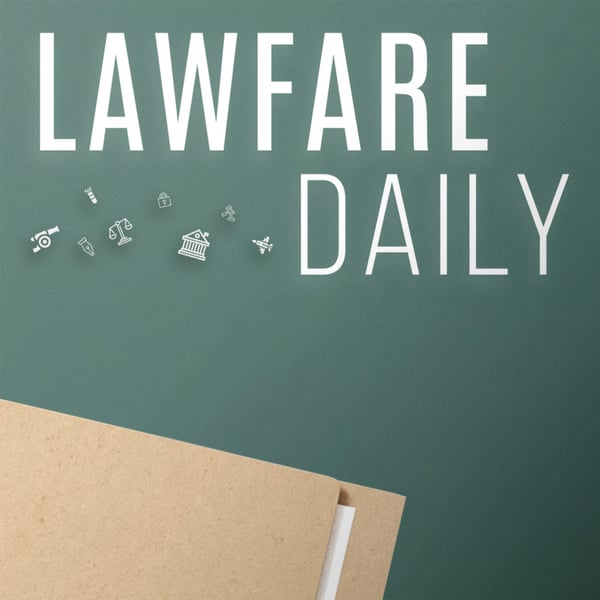Episode #32: A Discussion with 9-11 Case Defense Lawyer CDR Walter Ruiz
The Lawfare Podcast
The Lawfare Institute
4.7 • 6.2K Ratings
🗓️ 28 May 2013
⏱️ 48 minutes
🧾️ Download transcript
Summary
This week, Lawfare sat down with CDR Walter Ruiz, a lawyer for accused 9-11 co-conspirator Mustafa al-Hawsawi. Our discussion touched on, among other things: the fairness of military commission rules; Ruiz's contention that those rules allow evidence derived from torture; Ruiz's own background; his experience as capital defense counsel in history's most closely-watched terrorism case; and the burdens on commission defense lawyers.
Support this show http://supporter.acast.com/lawfare.
Hosted on Acast. See acast.com/privacy for more information.
Transcript
Click on a timestamp to play from that location
| 0:00.0 | The following podcast contains advertising to access an ad-free version of the LawFair |
| 0:07.2 | podcast become a material supporter of LawFair at patreon.com slash LawFair, that's patreon.com slash |
| 0:16.9 | LawFair. Also check out LawFair's other podcast offerings, rational security, chatter, LawFair |
| 0:25.6 | no bull, and the aftermaths. |
| 0:44.3 | Hello and welcome to the LawFair podcast. I'm Wells Bennett. We continue this week with our coverage |
| 0:51.0 | of the military commissions in Guantanamo Bay. In January, we spoke to Brigadier General Mark |
| 0:56.8 | Martins, the commission's chief prosecutor, on his recommendation to withdraw certain charges |
| 1:02.5 | against the defendant's accused in the 9-11 case. This week, I spoke to Commander Walter Ruiz, |
| 1:08.4 | a lawyer for one of the men accused in that case who stopped all how sorry. |
| 1:13.9 | Let's start with the commissions just generally before we talk about the case on which you've |
| 1:21.3 | been working. Congress has approved these tribunals twice. We know they impact it, support them. |
| 1:28.3 | The Obama administration said it supports them under certain circumstances and touts the reforms |
| 1:35.1 | in 2009 statute is making them fair. Dallas you're aware of General Martins, very public efforts |
| 1:45.4 | at explaining and advocating for commissions, their procedures. How are they wrong? |
| 1:54.6 | Well, I mean if you're comparing them to where we started and where we are, certainly I think I |
| 2:00.1 | would be hard pressed to say that there hasn't been some progress. Right, but when the bar |
| 2:04.7 | starts that low, it's difficult to say that we haven't come up to some degree. |
| 2:11.8 | The wrong one may be different aspects. If you're talking about structural and what the 2009 |
| 2:17.9 | military commission's act lacks in structural terms of rights, like you would see in federal court, |
| 2:25.1 | rights that you were seeing in our state courts, we can start for example with one of the rules |
| 2:30.4 | that we've been talking about is the head derivative evidence for torture. |
| 2:36.2 | And the fact of the matter is that you've seen a great push from General Martins to say that |
... |
Please login to see the full transcript.
Disclaimer: The podcast and artwork embedded on this page are from The Lawfare Institute, and are the property of its owner and not affiliated with or endorsed by Tapesearch.
Generated transcripts are the property of The Lawfare Institute and are distributed freely under the Fair Use doctrine. Transcripts generated by Tapesearch are not guaranteed to be accurate.
Copyright © Tapesearch 2025.

